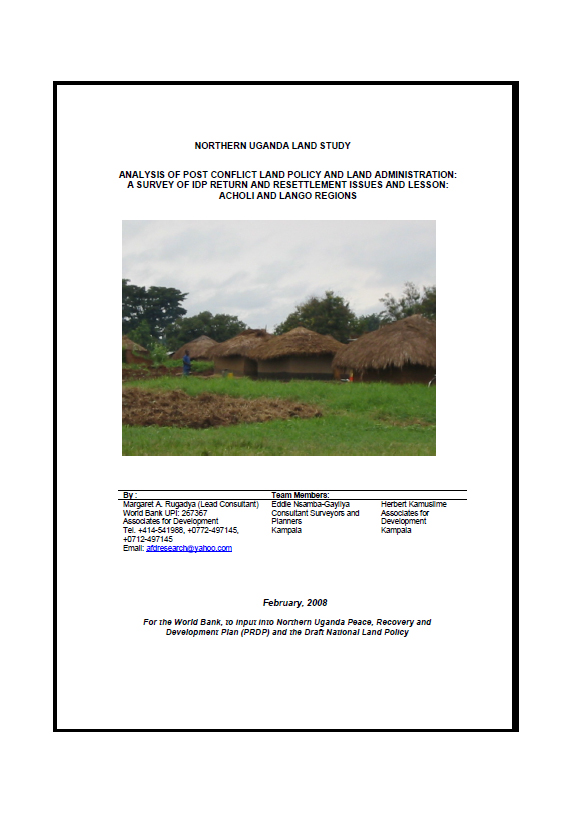Resource information
This is the second in a series of land studies for northern Uganda, whose core objective is to inform the Plan for Recovery and Development of Northern Uganda (PRDP) and the National Land Policy. It builds on the work of the first phase conducted in Teso region to present a more quantitative analysis of trends on disputes and claims on land before displacement, during displacement and emerging trends or occurrences on return for Acholi and Lango sub-regions. The key findings in the Teso study are that there is a high level of distrust towards the Central Government’s intentions toward land; customary tenure has evolved and adapted to changing circumstances but remains to be seen as a legitimate form of tenure; there was not a high prevalence of land disputes; the statutory and customary institutional framework for land administration and justice has been severely weakened; and vulnerable groups such as women and children have been marginalized during the return process. However, the Teso region has been one of the most secure regions during the conflict and has experienced very short periods of displacement and as such does not provide a good marker for the situation in the rest of northern Uganda. This is exemplified by the fact that though land conflict prevalence was extremely low in Teso region, it is high in the Lango and Acholi regions. The study is premised on the fact that the issue of land in return (restitution and resettlement) processes has not been adequately dealt with in the National Land Policy and various policies regarding IDP return in Northern Uganda. Land is a critical element in peace building and economic reconstruction in post- conflict situations; relevant issues must be understood and given appropriate priority for stabilization. The PRDP should prioritise the protection of land rights and re-establishment of production relations on land to bridge the poverty gap, which has been widening since 1997, between war-affected areas (northern Uganda) and the rest of the country.



